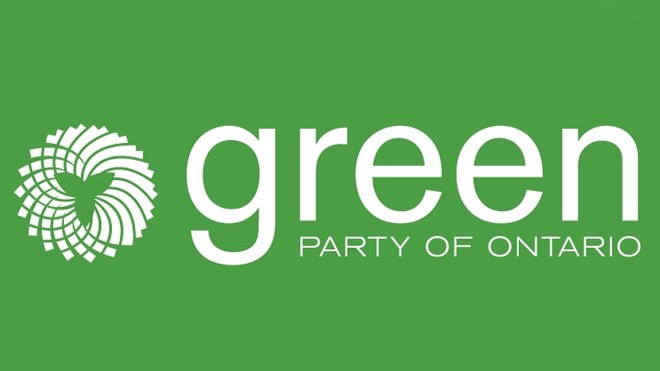This news release was issued June 1, 2018, by David Robinson, the Ontario Green Party candidate in Sudbury
Laurentian University Professor of Economics and candidate for the Green Party in Sudbury says Ontarios’s environmental protection legislation is “so 20th Century.”
“Existing legislation can’t ensure that any proposed chromite smelter is safe for residents,” says Robinson. ”We don’t want to wait until after the plant is operating to see if it is emitting toxic material. Ontario had an environmental protection policy that was pretty good by world standards in the 1990s. The fact is that we are heading for the 2020s, but Ontario’s approach to environmental protection remains firmly in the last century.”
“New and emerging monitoring technology cut the costs of monitoring enormously,” according to Robinson. “We don’t have to rely on the companies to report their spills and emissions. Self-monitoring is out of date. As the price of detection equipment falls, the Province can install its own monitoring equipment. It can give citizens devices and let them test their own local environments.”
“Cheap detectors let citizens monitor their own environment in Fukushima,” says Robinson. “The web let them share the data. With data flowing freely between citizens, there was no way the company or the government could hide the truth. That should happen wherever the chromite smelter goes.”
Proposing the Coniston site as the preferred location for a ferrochrome processing facility, in absence of public consultation with local residents, the City of Greater Sudbury has polarized the community. Dr. Robinson supports processing ferrochrome processing in the City, but only if the Province’s environment regulations are first brought into line with the demands of the 21st Century.
“What exactly do the Sudbury Liberals and the NDP want?” asked Robinson. “Do they want to see a thousand new jobs end up in Timmins? Do they want to see a smelter in their backyards without tests up front to make sure it’s safe? They are keeping their heads down. They either don’t want the jobs, or they don’t know how to make sure the smelter is safe.”
“The Green Party believes that we can do better,” says Robinson. “There’s an opportunity here in Greater Sudbury to create well-paying jobs. And there’s an opportunity for Sudbury to push the Ontario government to reform our antiquated environmental assessment process. We need a process in place to evaluate potential impacts before sites are selected for major industrial projects.“
“The Green Party of Ontario is the only party that is ready to tell Noront and other mining stakeholders that a social license can only be obtained from community residents through an informed and robust environmental assessment process before any smelter is built. We’re going to tell voters and community stakeholders that we believe there is a place for ferrochrome processing in Ontario, as long as project proponents are held to the highest standards through provincial legislation. The precautionary principle will be used to determine whether a project moves forward – not the whim of a Provincial Minister.”
The Green Party of Ontario has long advocated for the use of the precautionary principle when it comes to evaluating the impacts from industrial projects. The Canadian Environmental Law Association (CELA) defines the ‘precautionary principle’ as, “a duty to prevent harm, when it is within our power to do, even when all the evidence is not in.” CELA also acknowledges that the principle has been enshrined in some international treaties.
“Greens want to end this divisive ‘jobs vs. environment’ mentality that the Liberals and New Democrats subscribe to,” says Robinson. “It’s not about having one at the expense of the other.”
“I know we can create a positive environment for resource-based industries in the north,” says Robinson. “And I know the economics involved in protecting and enhancing our local and regional environments. Any Sudburian can look around at the City’s regreening efforts and understand instinctively that there is a real value in a having a healthy environment. This time out, instead of fixing damage after it has been done, let’s make sure that we don’t risk our health and our environment in the first place. And let’s build into that a process where we can collaboratively monitor local impacts as they happen.”
